ГДЗ Англійська мова 5 клас. Підручник [Коста Д., Вільямс М.] 2022
8. At school - 9. Feeling good (Стор. 50 - 61)
Стр.50VOCABULARY AND LISTENING
1. З’єднай шкільні предмети з об’єктами на малюнку A-J.
A. music; B. science; C. French; D. geography; E. English; F. IT; G. art; H. history; I. PE; J. maths
3. Послухай розповідь вчителя про зміни в шкільному розкладу. Напиши предмети, які ти чуєш.
Maths, art, history, IT, English, music, PE, geography
5. Який твій улюблені шкільні предмети? Розкажи партнеру.
Наприклад: My favourite school subjects are Math and English but I do not like Geography and History.
Стр.51
GRAMMAR
1. Подивись на таблицю та потім вибери правильні слова щоб доповнити речення.
1 We use does to make questions and short answers with he and she. 2 We use do to make questions and short answers with I, you, we, and they.
2. Подивись на Лари шкільний розклад. Доповни запитання та відповіді.
1. A: Does Lara have science on Wednesdays? B: No, she doesn’t. 2. A: Does Lara have art on Fridays? B: No, she doesn’t. 3. A: Does Lara have history on Mondays? B: Yes, she does.
3. Склади запитання. Потім запитай та дай відповідь зі своїм партнером.
1. Do you do homework in the morning?
2. Do you understand your maths lesson?
3. Do you use IT in English lesson?
4. Does your dad help you with homework?
5. Does your school have a photo club?
6. Does your teacher walk to school?
7. Does your friend like PE?
8. Do your mum and dad speak English?
Стр.52
VOCABULARY AND READING
1. Прочитай інтерв’ю про Ловану. Де її школа? Чи має вона уроки кожен день?
Her school is at home. She has lessons five days a week. She doesn’t have lessons in the holidays.
2. Прочитай інтерв’ю знову. Потім прочитай речення та напиши «так» чи «ні». Виправи неправдиві речення.
1. Lowanna starts her lessons at six o’clock. No, she starts her lessons at eight o’clock.
2. Lowanna’s teacher talks to her on her phone. No, she talks to her on the computer.
3. Lowanna can see the other students. Yes.
4. Lowanna has homework to do after the lessons. Yes.
5. Lowanna’s mum and dad help her with homework. No, her school friends help her.
6. Lowanna meets the other students at weekends. No, they meet in the summer camps.
Стр.53
5. Доповни речення словами з рамочки.
1. a. Lowanna and her family come from Australia.
b. My friends sometimes come to my house.
2. a. What do you think of my new school bag?
b. I think the bus leaves at 9.15.
3. a. My brother and I catch the bus to school every day.
b. Our dogs catch the ball when we play football in the park.
4. a. I often see my friends in town.
b. Hello, Sam. Nice to meet you.
5. a. What time do you get home?
b. I get lots of presents on my birthday.
6. Знайди слова з впр. 5 в інтерв’ю. Слова мають однакові значення з a чи b?
1. a. Lowanna comes from Austria.
2. a. I don’t catch the bus to school.
3. b. I can see my teacher on my computer screen.
4. b. Do you get homework?
5. a. We meet in the summer.
6. a. I think it’s great.
GRAMMAR
1. З’єднай питальні слова з відповідями.
Who? – a person.
What? – a thing.
Where? – a place.
When? – a time, a day, etc.
How often? – every day, every week
Why? – a reason
3. Доповни запитання. Використай усі питальні слова.
1. Where do you live?
2. Who’s your best friend?
3. When do you have breakfast?
4. How often do you clean your bedroom?
5. What’s your favourite subject?
6. Why do you like football?
4. Прочитай відповіді та потім напиши запитання. Використай різні питальні слова для кожного запитання.
1. Why do you like history? I like history because it’s interesting.
2. How often do you have guitar lessons? I have guitar lessons one day a week.
3. Where do you come from? I come from Madrid.
4. Who is that? Oh, that’s my dad.
5. What is the time? It’s one o’clock.
6. When does the bus leave? The bus leaves at quarter to five.
5. Послухайте питання Wh- із вправи 3. Які слова наголошені? Підкресліть їх.
1. Where do you live?
2. Who’s your best friend?
3. When do you have breakfast?
4. How often do you clean your bedroom?
5. What’s your favourite subject?
6. Why do you like football?
WRITING
1. Напиши декілька запитань щоб запитати твого друга про школу. Використовуй запитання з інтерв’ю Лована, щоб допомогти тобі. Напиши по одному запитанню на кожне питальне слово.
Who is your best friend at school?
What form are you in?
Where is your school situated?
When do you have English?
How often do you have sport activities?
Why do you like school?
Стр.54
1. Прочитай, подумай та дай відповідь. Обсуди з партнером.
1. What’s your favourite school subject? Why? My favourite school subject is English. I like to speak foreign languages.
2. What languages can you speak? I can speak Ukrainian and English.
3. Who’s your English teacher? My English teacher is Mrs ……
4. Where do you do your English homework? I do my English homework at home.
5. What is your favourite part of an English lesson: reading, listening, writing or speaking? I like reading most of all.
2. Познач речі, які ти робиш.
read in English; listen to English; write in English
3. Прочитай повідомлення на онлайн форумі. Які з ідей з впр. 2 ти можеш побачити?
read in English; listen to English; write in English
4. Прочитай повідомлення знову. Прочитай речення нижче та познач так чи ні.
1. To be a good English learner, you can read in English. Yes
2. To be a good English learner, you can listen to your own language. No
3. To be a good English learner, you can write to an English friend. Yes
4. To be a good English learner, you can dance to English pop music. No
5. To be a good English learner, you can learn the words to English pop music. Yes
6. To be a good English learner, you can watch TV when you do your homework. No
Стр.55
5. Склади фрази. Зєднай дієслова 1-5 зі словами а-е. Подивись на повідомлення, щоб перевірити.
1. read comics (d); 2. watch TV (c); 3. write letters (b); 4. listen to music (e); 5. do homework (a);
6. Познач картинки. Використовуй фрази з впр. 5.
1. watch TV; 2. read comics; 3. listen to music; 4. write letters; 5. do homework.
7. Послухай розповідь людей про вивчення англійської. Дай відповідь a, b, c.
What does Pablo want help with? b. learning vocabulary in English
8. Послухай. Підкресли твердження які ти чуєш.
making vocabulary cards, learning words in groups, making vocabulary notebooks, putting words on things in the house.
9. Доповни речення в рамочці. Використай подані фрази нижче.
Suggestions
1. What about making vocabulary cards?
2. You can put words on things.
3. Learning words in groups is a good idea.
10. Постав слова в правильному порядку. Використай рамочку вище.
1. What about having a vocabulary notebook?
2. Using dictionary is a good idea.
3. You can write the word in a sentence
Стр.56
VOCABULARY
1. Обведи зайве слово.
1. potato; 2. stand; 3. chicken; 4. sing; 5. tomatoes; 6. foot
2. Познач малюнки словами частинами тіла.
1. eye; 2. ear; 3. face; 4. hair; 5. nose; 6. teeth; 7. mouth; 8. head; 9. arm; 10. leg; 11. hand; 12. foot.
GRAMMAR
1. Постав слова в правильному порядку, щоб отримати запитання. Потім запитай та дай відповідь.
1. Do you go to an after-school club on Tuesdays?
2. Does your teacher walk to school?
3. Do you have a phone in your bag?
4. Do your parents play the guitar?
5. Do your parents get you up before seven o’clock?
2. Подивись на речення та виправ речення. Використай some, any, lots of.
1. They haven’t got any chocolate biscuits.
2. They have got lots of fruit.
3. They have got dome drinks.
4. They have got some bread.
5. They have got some meat.
6. They have got lots of tomatoes.
7. They have got some cheese.
3. Подивись на таблицю та склади речення. Використовуй can, can't, and, but, or.
Maria can run fast but she can’t swim.
Sara can’t swim or run fast.
Rose can speak French and Ukrainian.
Callum can play tennis but he can't cook.
Hannah can’t play tennis or play the guitar.
Стр.57
SPEAKING
1. Використовуй малюнки щоб розказати про свою денну рутину.
I wake up at quarter to seven. I get up at seven and wash my face. I get dressed at quarter past seven and have my breakfast. I clean my teeth at half past seven and go to school.
READING
1. Прочитай повідомлення від друга по листуванню та дай відповіді на запитання.
1. How old is Rodrigo? Rodrigo is 14 years old.
2. Where does he go to school? He goes to school in Madrid.
3. What are his favourite school subjects? His favourite subjects are maths and science.
4. What sport does he do? He plays football.
5. When does Rodrigo visit a cafe? Rodrigo visits café in the evening.
6. What does Rodrigo want people to do? He wants people to write to him.
WRITING
1. Напиши лист Родріго. Дай відповіді на його запитання.
Hello Rodrigo,
My name is Mark. I am 10 years old. I like sport. I play football three times a week. At the weekend I play with my friends.
Стр.58
VOCABULARY AND LISTENING
1. Зєднай слова з рамочки з фото A-J.
A. badminton; B. hockey; C. baseball; D. table tennis; E. swimming; F. football; G. tennis; H. running; I. basketball; J. dancing
2. Ми використовуємо слово «play» з деякими словами з вправи 1. З якими?
We play badminton. We play baseball. We play basketball. We play football. We play hockey. We play table tennis. We play tennis.
3. Послухай Джолі, Паоло та Роса про їхній спортивний проект на фото 1-3. Напиши їх імена.
1. Paolo's photo; 2. Joelle's photo; 3. Rosa's photo.
4. Послухай знову та доповни речення. Потім з’єднай речення з малюнками.
1. Joelle: I’m not very good at playing basketball – picture A.
2. Rosa: I’m good at running – picture B.
5. Підкресли наголос у слові.
1. computer; 2. address; 3. television; 4. potatoes; 5. guitar; 6. badminton; 7. bedroom; 8. vegetables; 9. tennis; 10. nationality.
Стр.59
GRAMMAR
1. Прочитай речення. Вибери правильне слово щоб доповнити речення.
After like and don’t like we use a noun or the -ing form of the verb.
2. Доповни таблицю з закінченням –ing дієслів в рамочці.
catch- dance- run- catching dancing swimming cleaning riding running playing taking walking watching
З’єднай дві частини речення, щоб отримати правило.
1. When verbs end in two or more consonants, we add ing. (b)
2. When verbs end in an e, we cut the vowel and add ing. (c)
3. When short verbs end in a vowel and a consonant, we double the consonant and add ing. (a)
3. Доповни речення з –ing формою дієслова в рамочці.
1. Mary doesn’t like dancing. 2. I like playing badminton. 3. Alison and Gemma don’t like eating potatoes or bread. 4. You like standing on your head. 5. Paul doesn’t like swimming. 6. We like learning English.
Стр.60
VOCABULARY AND READING
1. Прочитай лист доктору 1-2. Познач їх з відповідями вчителів А-В.
1. B; 2. A.
Стр.61
2. Прочитай листи та дай відповіді на запитання. Подивись на речення. Напиши так або ні.
1. Sophie likes eating apples. No
2. Sophie likes doing sport. Yes
3. Tom likes going to the park. No
4. Tom is very tired. Yes
5. The doctor thinks it’s good for Tom to stay at home. No
6. The doctor thinks it’s good for Sophie to eat sweet things. No
3. Прочитай поради тижня від доктора Смарт. Подивись на 5 сніданків. Познач які з них хороші.
Good breakfasts are 1, 3 and 5. 2 and 4 aren’t good breakfasts. It isn’t good for you to eat chocolate, cake, chips or ice cream for breakfast.
4. Доповни речення словами з тексту.
1. It isn’t good for people to eat a lot of biscuits.
2. Eat fresh fruit and vegetables and you’ll feel well/ better/ fine.
3. Spend time with your friends and you’ll feel better.
4. I like doing sport and it’s good for me.
5. Eat a good breakfast and you’ll feel fine.
5. Працюй в парах. Доповни таблицю словами і фразами з рамочки. Доповни своїх 4 ідеї.
Good for you: bread, dancing, oranges, vegetables, walking to school, water; juice, fruit, sport, Not good for you: butter, cake, chocolate, playing computer games
6. Що ти їси на сніданок? Розкажи.
I usually have tea and a sandwich for breakfast.
GRAMMAR
1. Прочитай листи знову на стор.60. Скільки фраз з рамочки ти можеш знайти?
at it, for me, for us, for you, with them
2. Доповни таблицю займенниками з впр. 1.
1. you; 2. him; 3. her; 4. it; 5. us; 6. you; 7. them
3. Доповни речення.
1. They like playing basketball. It’s good for them.
2. I like drinking milk. It’s good for me.
3. She doesn’t like eating ice cream. It isn’t good for her.
4. We don’t like eating a lot of chocolate. It isn’t good for us.
5. He likes walking to school. It’s good for him.
6. I don’t like playing table tennis. I’m not very good at it.
 ГДЗ Англійська мова 5 клас Підручник Коста Вільямс 2022 НУШ Лінгвіст
ГДЗ Англійська мова 5 клас Підручник Коста Вільямс 2022 НУШ Лінгвіст
 Якщо помітили в тексті помилку, виділіть її та натисніть Ctrl + Enter
Якщо помітили в тексті помилку, виділіть її та натисніть Ctrl + Enter 01.04.2023,
01.04.2023,
 6 196,
6 196,
 0
0
 Назад
Назад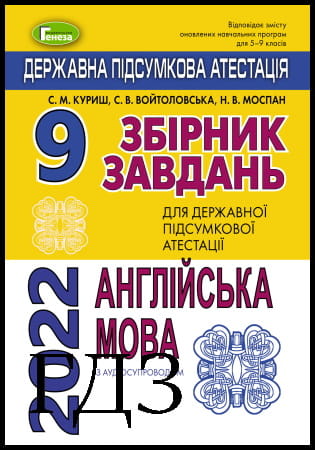
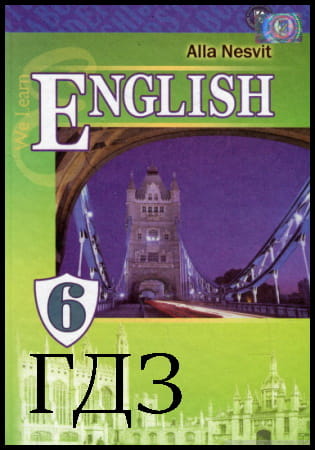
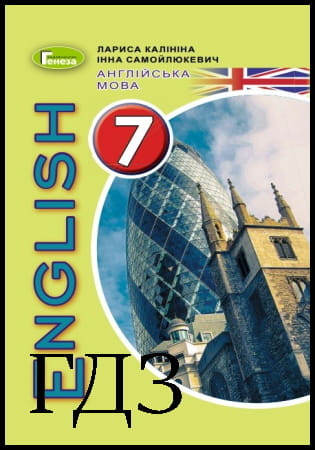
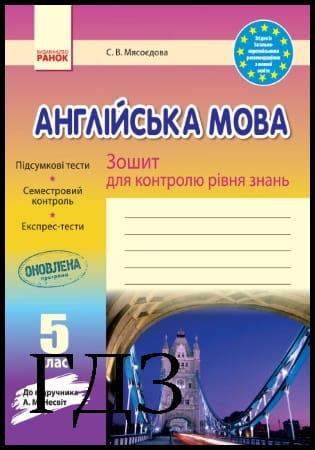
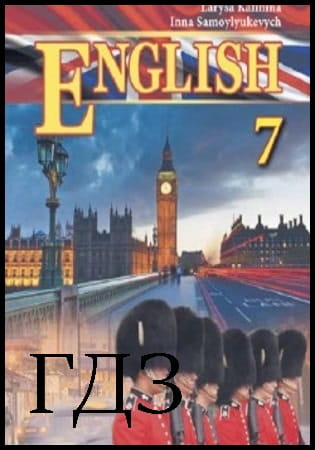
![ГДЗ Природознавство 5 клас. Підручник [Ярошенко О.Г., Бойко В.М.] 2018 ГДЗ Природознавство 5 клас. Підручник [Ярошенко О.Г., Бойко В.М.] 2018](/uploads/posts/2019-04/1555779316_5_p_y_u2018.jpg)
![ГДЗ Основи правознавства 9 клас. Підручник [Наровлянський О. Д.] 2017 ГДЗ Основи правознавства 9 клас. Підручник [Наровлянський О. Д.] 2017](/uploads/posts/2019-02/1550928122_9k_p_n_2017.jpg)
![ГДЗ Українська мова 8 клас. Підручник [Глазова О.П.] 2021 ГДЗ Українська мова 8 клас. Підручник [Глазова О.П.] 2021](/uploads/posts/2021-10/1633720388_8k_y_g_2021.jpg)
![ГДЗ Вступ до історії 5 клас. Підручник [Гісем О.В.] 2018 ГДЗ Вступ до історії 5 клас. Підручник [Гісем О.В.] 2018](/uploads/posts/2019-07/1564163269_5k_i_h_2018.jpg)